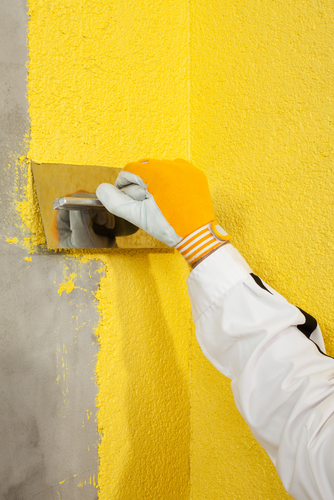Best rendering & resurfacing specialists near you
Top rendering & resurfacing specialists near you
Browse the best rendering & resurfacing specialists and compare ratings and reviews.
Hire the best rendering & resurfacing specialist
Search Uptasker for the best rendering & resurfacing specialists
How can a rendering and resurfacing specialist help me?
No building is immune to wear and tear, and over the years cracks and weaknesses will begin to appear which will affect the overall integrity and general appearance of the building itself. In South Africa, we have extremes of temperature in some areas which place strain on the exterior walls, making them more vulnerable to damage and damp. If your home, commercial or corporate premises are showing signs of deterioration or simply look worn-out and unsightly, act quickly and sort the problem out before it becomes a major issue.
Perhaps it is simply a matter of cosmetic resurfacing of exterior or interior walls, either to add a textured element to certain walls or to smooth walls which have suffered too many knocks, nail holes and patchwork over the years. This is where the services of a rendering and resurfacing specialist are needed.
What is rendering and resurfacing?
Rendering and resurfacing refers to the process of applying a cement mixture, usually to external walls, in order to achieve either a smooth or textured surface. According to Wikipedia, “Render may be fine or coarse, textured or smooth, natural or coloured, pigmented or painted.” It is comparable in technique to interior wall plastering and uses a similar mix of sand, cement and water, but also includes lime which adds elasticity and therefore makes it less prone to shrinkage, cracking and splitting after it dries. Render is applied in very thin layers, using items such as a trowel (as in plastering), a brush, a hessian bag or a sponge, particularly in cases where a textured effect is required. The process may consist of a number of different layers, with the finish becoming smoother and finer with each layer.
Render provides an additional element of protection
Modern render mixtures may include acrylic products, minerals, silicone and polymers. The addition of polymers to the mix increases water resistance, flexibility and adhesion, whilst acrylic renders have superior water resistance and strength. Render is therefore particularly effective in adding a further element of protection against water and damp, and also provides a measure of heat and sound insulation.
Whilst face-brick buildings are attractive and blend in well with their surroundings, the glaze or covering of the bricks themselves eventually erodes and becomes vulnerable to damp conditions and, in time, may need the additional protection that render can provide. Signs of this may be seen when efflorescence occurs as the minerals inside the bricks start to seep out and stain the exterior walls. Another worrying fact is that the mortar between the bricks will begin to crumble over time and allow water and damp penetration into the structure.
Rendering can be used for decorative purposes
In the days when texture was all the rage, many houses had interior or exterior walls which were specifically roughened to the touch. In the United Kingdom, many houses were covered in the once-popular ‘pebble-dash’ after the Second World War, aimed primarily at covering up inferior building surfaces but which has since fallen into disuse. Resurfacing or rendering can cover and smooth surfaces such as these, adding more modern and cleaner lines to a building and bringing it back up to date. Conversely, if you want to add decorative or more rustic elements to a building, render is one of the best ways to do so. Render can also be used to cover old vibracrete or concrete slab walls which are still foundationally solid in order to add a more modern appearance to the walls.
How to find the right rendering and resurfacing specialist for your needs
Check their online ratings and customer reviews
Rendering and resurfacing specialists form part of the building trade as a whole, and often work closely with builders and renovators. They also work independently, and are slowly starting to showcase their work over the internet. If you are searching online for such a specialist, Uptasker will really save you time and effort. Uptasker provides listings in geographical areas as well as online ratings and customer reviews, and one-click links to service suppliers’ websites where possible. The advantage here is also being able to obtain quotations from different suppliers for the same job, so you can be sure of getting the best price. You can also find these specialists through newspaper advertisements, building and home magazines, home expos and the Yellow Pages.
Top rendering and resurfacing specialist tips

As with plastering, rendering and resurfacing is a specialized art which demands skill, experience, training and professional knowledge. Whether you are looking for a solution to a more serious problem which could ultimately affect the structure of your building, or simply want to update the appearance of your premises or add a more rustic effect, a rendering and resurfacing specialist is your answer. For more tips, see our rendering and resurfacing specialists’ articles.
Read Rendering & Resurfacing articles
More rendering & resurfacing specialists near you
Browse more rendering & resurfacing specialists and compare ratings and reviews.